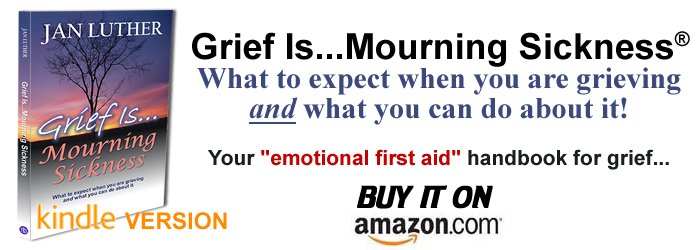You didn’t see it coming and couldn’t have prepared for it. It was a phone call or a frantic trip to the emergency room or the authorities knocking on your door and, suddenly, your child or another loved one has died.
Suddenly, you find yourself lost in the valley of grief.
Shock and confusion rattle you to your very soul. Your mind keeps repeating, “This can’t be happening.”
The loss of your loved one quickly fills your days with incomprehensible duties; calling relatives and friends with the dreadful news, planning a funeral and Heaven help you when it’s time to go back to work.
Grief can hijack your mind, forcing you to watch repeated replays of the traumatic “mental movies” of the last time you saw them or the place and time when you received the dreadful news.
You’re struggling to function day-to-day and have that constant lump in your throat, the unpredictable waves of tears that come instantly at the sound of “their song” or the smell of “their cologne” or “their perfume.”
Maybe you’re beating yourself up over regrets from the past or wrestling with the idea of having to accept a future without your loved one. Maybe you find yourself watching helplessly as your family members slowly fade into mere shadows of themselves as they struggle to deal with their grief.
It’s normal to feel powerless and ill-equipped to deal with grief because, unfortunately, most folks aren’t prepared for the devastating experience of losing a loved one. Dealing with grief isn’t something we normally talk about.
If you’re like me, when my 22-year old son died, I was willing to do the work…I was just having trouble finding someone to show me HOW!
So, I did the only thing I knew how to do – I did research! I scoured the internet. I read dozens of books. I talked with local grief experts. I hired personal coaches. Everyone seemed to have an idea or two that was helpful, but I wanted an action plan. Call me impatient, but I wasn’t going to be satisfied with merely ‘understanding’ the grieving process or waiting to see if “time” alone would heal my broken heart.
I made it my goal to figure out this grieving thing and to share whatever I found to be helpful with my clients. The result: I’ve compiled the ideas, stories – and some action steps – that have proven to be helpful in my book,
Order your copy today!
I named it Grief Is…Mourning Sickness® because that was my first insight as a grieving Mom.
Having to bury my son made me keenly aware that the processes of birthing a child and “deathing” a child mirror each another. Can I just say “OUCH!!!!”
Grief Is…Mourning Sickness is a quick read – most people tell me they’ve easily read it in one sitting. In the introduction, I model how I took inventory on my own life. I was determined to be completely transparent about the numerous traumas, losses and changes I’ve personally experienced. I consciously decided to bare my soul (scary) so you could see that I don’t pretend to be anything but your average “Jan”…a real person who’s been there, suffered and struggled and figured out some things that work.
So, I’m really hoping you’ll sense how much I want to help you with your grief recovery. Each chapter in the book begins with an insight about the grief experience. I then take that insight and model it, through story, to show how it’s been helpful for me and my real life clients.
You’ll learn additional life skills in each chapter along with healing suggestions and exercises specific to your grief recovery.
The last chapter is an introduction to The 5 Aspects of Grief. Many of my clients tell me that just having this practical understanding of the aspects of grief has given them great patience with their own process.
Obviously, I don’t know about your loss, where you are in your grieving process or even if you know what you need right now.
I know I didn’t have any idea what I was in for when I started consciously addressing my grief. I muddled along, in part; inspired by the idea that maybe, just maybe, I could help someone like you by sharing what I was learning.



